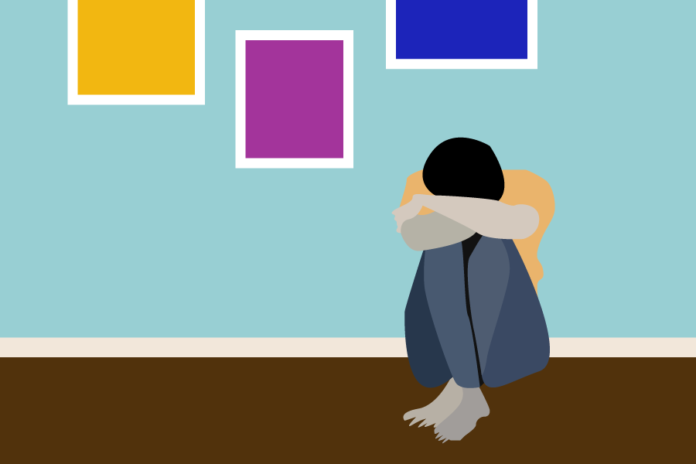Although unprecedented, we can still take advantage of this free time
Simple pleasantries such as small talk with a coworker, catching up with a friend over coffee or even hugging your loved one have become rare and almost entirely forbidden. As the number of COVID-19 cases rise, the importance of social distancing has become more apparent. Sheltering inside and only going out for essentials is intended to help flatten the curve. The more we avoid other people, the faster this deadly virus will go away. Introverts, like myself, have been preparing for a situation like this our whole lives. People who depend on social interaction, however, may be taking a mental hit during this pandemic. In the end though, we all might suffer immensely.
Some are lucky enough to be quarantined with their families, friends or partners; others, including myself, are not so lucky. In this isolation, many of us are already suffering from loneliness. FaceTime, Snapchat and other social media networks can only remotely bring us closer to our loved ones. As humans, we crave physical and organic connections with others, and this cannot be satisfied artificially. Unfortunately, however, social distancing has eliminated almost every mode of social interaction we have.
Schools are being navigated online, leisurely events are suspended or canceled and only businesses that have been deemed essential remain open. Busy streets have become ghost-like, and stores are left empty. The familiar has become unrecognizable, and the future is uncertain. Even a mentally and physically healthy person can be affected by these drastic changes.
The thought alone of this novel virus invading our bodies can increase the amount of anxiety a person may feel. Even more so, the shortage of household essentials and medical supplies amplifies feelings of uncertainty and stress. Each time we leave the house, we put ourselves at risk as the number of confirmed cases escalates. As more businesses close, stress and anxiety surrounding financial security is also starting to set in for millions of people. On the other hand, those who are working on the front lines who cannot socially distance like the rest of us are being exposed the most everyday. Despite this, many essential workers have not been provided with hazard pay. In some way or another, it seems as though we are all experiencing a lack of safety and security.
The shelter-in-place order has led many of us to engage in an endless amount of scrolling on our phones. Even without the overwhelming amount of scientific evidence, we know that social media can be harmful to mental health. Especially now, seeing old pictures of how life used to be can send us into various states of depression. Setting high expectations for ‘self-care’ and ‘personal growth’ during this time may be unrealistic, leaving many of us feeling defeated if, by the end of this quarantine, we did not write a novel or become the fit and healthy person we had envisioned for ourselves.
Although this truth may seem grim, there is a lot that can be done to boost more than just our immune systems. Reading a good book (or multiple), drawing or painting, listening to music or motivational podcasts, meditating, learning to cook and even taking a long overdue nap can help put our minds at ease. That said, this can’t replace true human interaction.
As humans, we are social by nature, and having to live during a time where in-person socialization is forbidden is truly unprecedented in modern day.
The silver lining in this grey cloud is that the cultural norms that have pushed us to always be in the fast lane and hurry through life have suddenly forced us to slow down. Perhaps this is an opportunity to reflect on the things we don’t always appreciate.
At the end of this, we will have learned to value the small things in life, such as full shelves of toilet paper, seeing and smiling at strangers on the street and sitting down at our favorite restaurants. There may seem to be no end in sight right now, but we should never lose hope.
Our immune systems may be at risk and our mental health may be taking a hit, but we should take advantage of this time to spend with our families or even with ourselves. Ironically, even though we must isolate alone and away from others, we are all in this together.
Written by: Kacey Cain — klcain@ucdavis.edu
Disclaimer: The views and opinions expressed by individual columnists belong to the columnists alone and do not necessarily indicate the views and opinions held by The California Aggie





